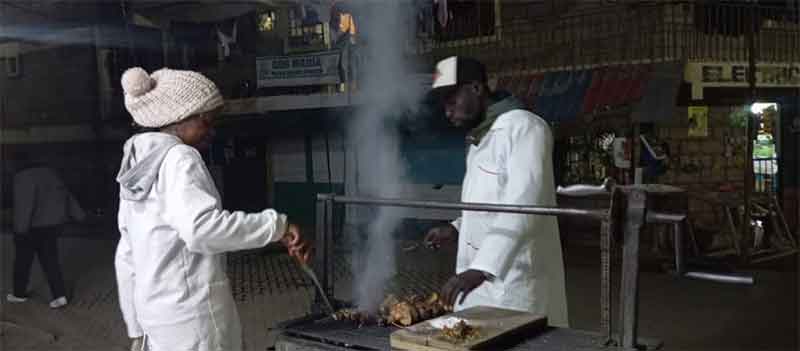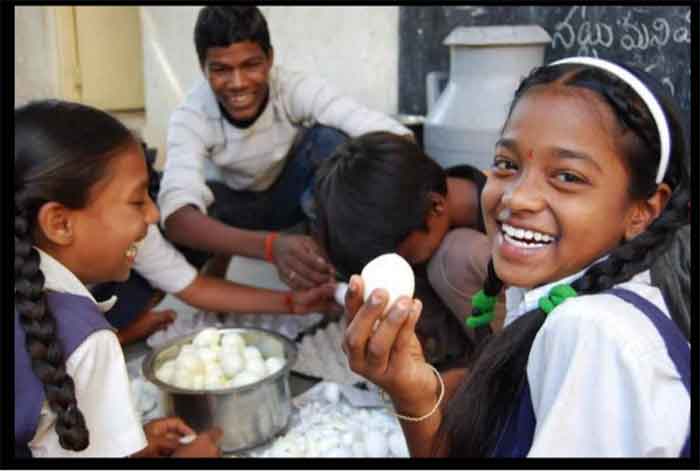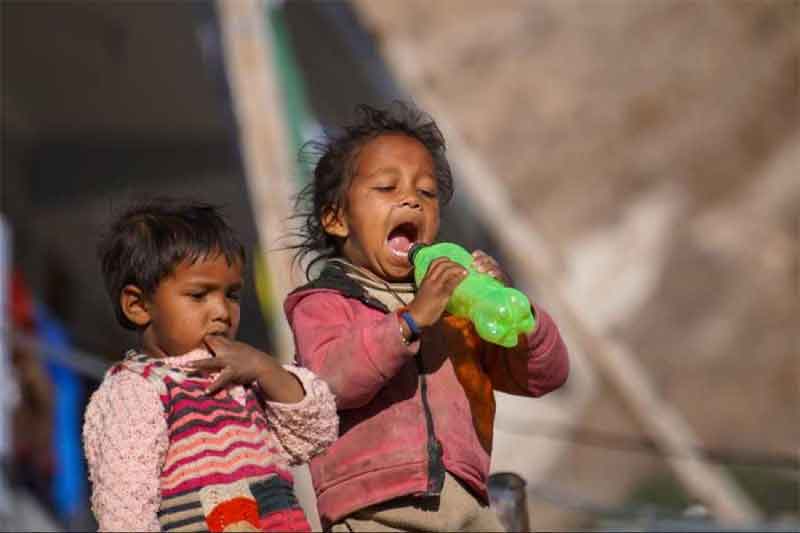
“They starve you of dignity, protein, and purpose and then blame you for being too weak to resist. It’s time we changed the recipe.”
In Embu, where systemic neglect and economic exclusion define our lives, our organizing began around food not just hunger, but dignity, sovereignty, and survival. Through community kitchens and solidarity efforts, we learned that resistance starts with full stomachs, and full stomachs need more than maize and cabbage. They need power food. They need meat.

In our neighborhood, Mutura is more than just street food. It is a tradition rooted in zero-waste knowledge, in honoring the entire animal, and in making sure nothing is thrown away because we cannot afford to. But more than that, Mutura is protein-rich, affordable, and collective. It is made together, shared together, and often eaten around fires lit not just for warmth, but for resistance.
Mutura: A Revolutionary Sausage of the Streets
While elite discourses push veganism and middle-class health trends, the poor have always known the value of meat. We don’t throw away intestines, blood, or liver we turn them into nourishment. We make them count. And in that process, we also reclaim our agency.
Ingredients
1 kg fresh small intestines (thoroughly cleaned)
500g fresh animal blood (cow or goat)
250g liver
250g pancreas (optional)
2 large onions (finely chopped)
4 cloves garlic (minced)
1 tablespoon salt
1 teaspoon black pepper
1 teaspoon ground chili or paprika
1 tablespoon fresh coriander (optional)
Preparation
1. Clean the Intestines: Use clean water, lemon, or vinegar to scrub thoroughly. This is sacred work.
2. Prepare the Filling: Chop liver and pancreas. Mix with onions, garlic, spices, and blood. Let it thicken.
3. Stuff the Intestines: Carefully fill the cleaned intestines and tie both ends.
4. Pre-Boil: Boil for 30–45 minutes until the sausage firms up and turns dark.
5. Grill or Roast: Finish over open flame or charcoal grill for the iconic smoky flavor.
Serve it hot, sliced into chunks, with kachumbari, salt, and chili. But more than the sides—share it with comrades.
Mutura and Food Sovereignty
As our Embu Community Justice Center organized around mutual aid, food became central—not just as a need, but as a site of political power. By making mutura in community kitchens, we resist food apartheid. We affirm the right of the poor to eat protein-rich, energy-giving food.
In the words of a woman comrade from our center, “When we started making mutura together, it stopped being just food. It became ours. It gave us strength.”
We call this food sovereignty—not just growing our own, but reclaiming our right to cook what gives us power. Mutura teaches us to feed the struggle, literally. To rebuild our dignity through fire, meat, and labor.
Subscribe to Our Newsletter
Get the latest CounterCurrents updates delivered straight to your inbox.
The Meat of the Matter
In times of privatized hunger and NGO tokenism, we assert this:
Protein is power. Meat is resistance. And mutura is our recipe for revolution.
Let the oppressor fear a generation of wellfed revolutionaries. Let them tremble when the firewood is lit.
Wachira Nyaga, Embu Community Justice Center, Kenya










































